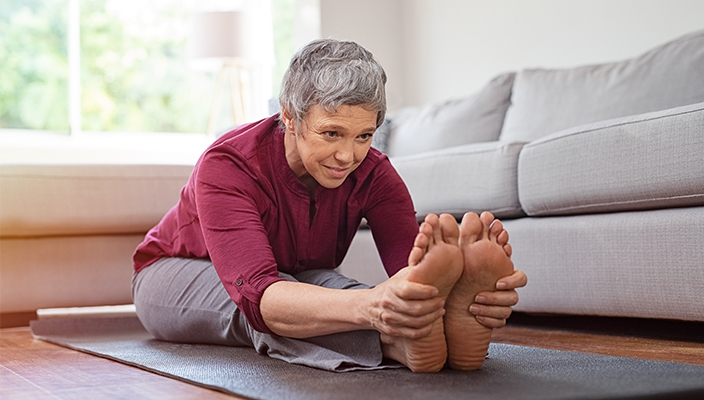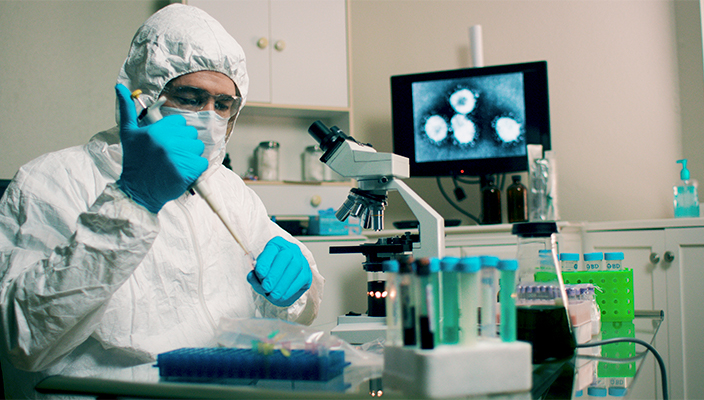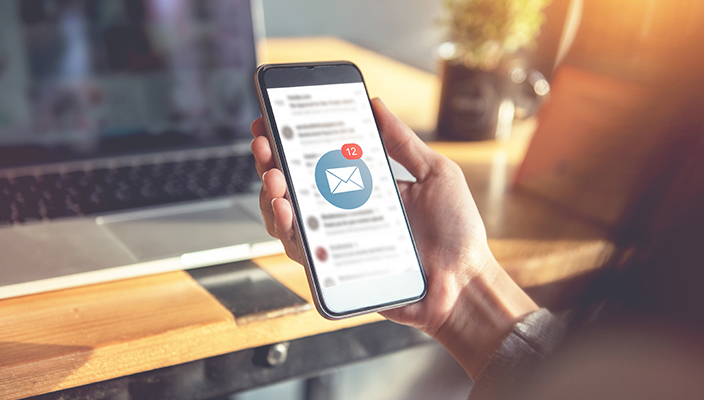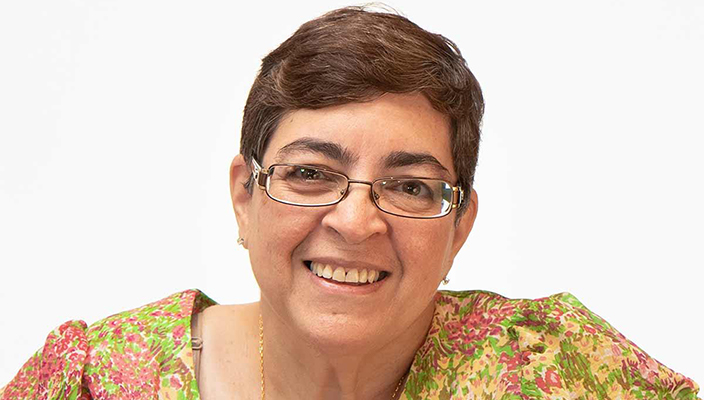 Evelyn Ortiz is a very social person. That makes volunteering as a Participant Ambassador for the All of Us Research Program a great fit for her. But it means that coping with the COVID-19 pandemic has been difficult. “It's hard not being able to go outside and talk to people about the program,” Evelyn says. “Little by little, I have had to adapt to this new reality.”
Evelyn Ortiz is a very social person. That makes volunteering as a Participant Ambassador for the All of Us Research Program a great fit for her. But it means that coping with the COVID-19 pandemic has been difficult. “It's hard not being able to go outside and talk to people about the program,” Evelyn says. “Little by little, I have had to adapt to this new reality.”
As a volunteer, Evelyn reaches out to the Hispanic and Latino community in Manhattan, New York. “I’ve really only had to stop my day-to-day activities,” she says. “But unfortunately, others here haven’t been so lucky.”
September 15 through October 15 is National Hispanic Heritage Month in the United States. This year, it comes during a difficult time. The pandemic has had an outsized impact on the Hispanic and Latino community in the United States. Hispanics make up about 17% of the U.S. population. But about 33% of people who have had COVID-19 are Hispanic.
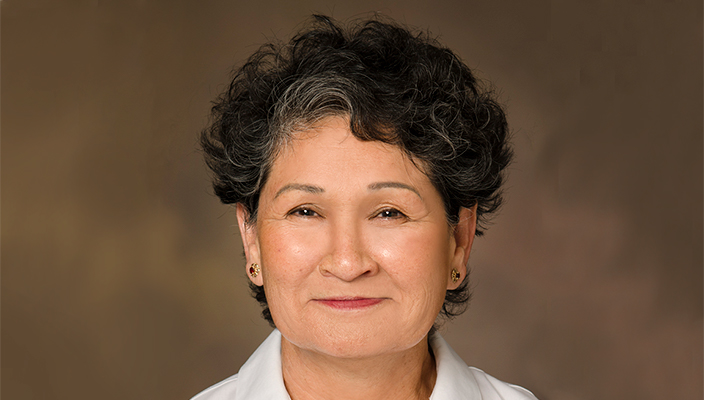 Economic and social conditions are one reason why. Many people in the Hispanic and Latino community are essential workers. That means they are more likely to be exposed to the virus. In addition, says Cecilia Rosales, M.D., M.S., many of them live with family members from multiple generations. Dr. Rosales is a doctor and researcher. She has worked with the Hispanic and Latino community for more than 30 years. Her work focuses on health issues around the border between the United States and Mexico. Now, she brings that experience to her role as a leader for All of Us at the University of Arizona/Banner Health. “People are constantly getting sick, because they need to go out and work,” she says. For many, “social distancing is just not possible. It’s a vicious cycle.”
Economic and social conditions are one reason why. Many people in the Hispanic and Latino community are essential workers. That means they are more likely to be exposed to the virus. In addition, says Cecilia Rosales, M.D., M.S., many of them live with family members from multiple generations. Dr. Rosales is a doctor and researcher. She has worked with the Hispanic and Latino community for more than 30 years. Her work focuses on health issues around the border between the United States and Mexico. Now, she brings that experience to her role as a leader for All of Us at the University of Arizona/Banner Health. “People are constantly getting sick, because they need to go out and work,” she says. For many, “social distancing is just not possible. It’s a vicious cycle.”
Getting health care can also be difficult for members of this community. People may not get treatment for COVID-19 until they are very sick. And a lack of health care contributes to other health disparities, too.
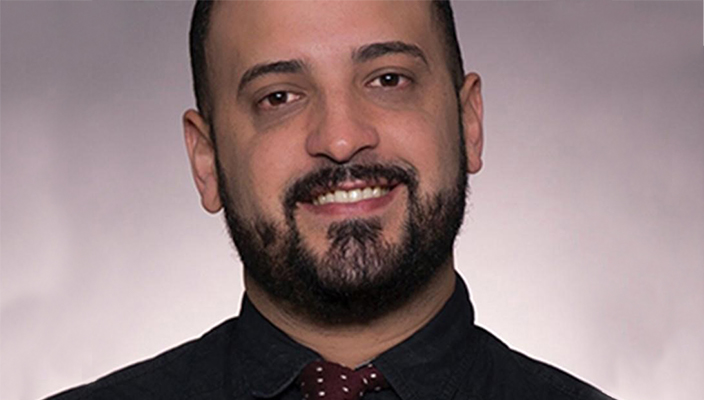 Christian Ramirez Martinez, M.D., believes that precision medicine is one key to ending these types of health disparities. Precision medicine is health care that is based on you as an individual. It takes into account things like where you live, what you do, your genes, and your family health history. Advancing precision medicine will require research that includes people from all backgrounds. Hispanic and Latino communities have not always been included in research in the past. All of Us is committed to changing that. And we couldn’t do it without the Hispanic and Latino communities that are part of the program.
Christian Ramirez Martinez, M.D., believes that precision medicine is one key to ending these types of health disparities. Precision medicine is health care that is based on you as an individual. It takes into account things like where you live, what you do, your genes, and your family health history. Advancing precision medicine will require research that includes people from all backgrounds. Hispanic and Latino communities have not always been included in research in the past. All of Us is committed to changing that. And we couldn’t do it without the Hispanic and Latino communities that are part of the program.
The chance to advance precision medicine is one reason Dr. Ramirez wanted to be part of All of Us. “Moments like these highlight the importance of precision medicine,” he says. Dr. Ramirez joined the All of Us team at Columbia University as a research assistant in 2017. Now, he leads enrollment for All of Us at Columbia.
All of Us paused in-person activities in March 2020. “We have had to be creative to connect with people,” Dr. Ramirez says. The team now makes phone calls and sends emails to get in touch with participants. Team members help participants complete program activities, like filling out surveys. They also check in to see how participants are doing. And people can still sign up online to join All of Us.
These new methods are helping. But for Evelyn, the Participant Ambassador, meeting in person was the best way to talk to people about All of Us. Evelyn looks forward to getting back into the community when it’s safe. In the meantime, she recalls what she likes about her work. “When I was talking to people about the program, they were excited to learn about it themselves. And they were excited because they knew they could contribute to their community,” she says. “Hispanics are supportive of each other.” It’s a difficult time. But that supportive spirit helps Evelyn stay motivated.





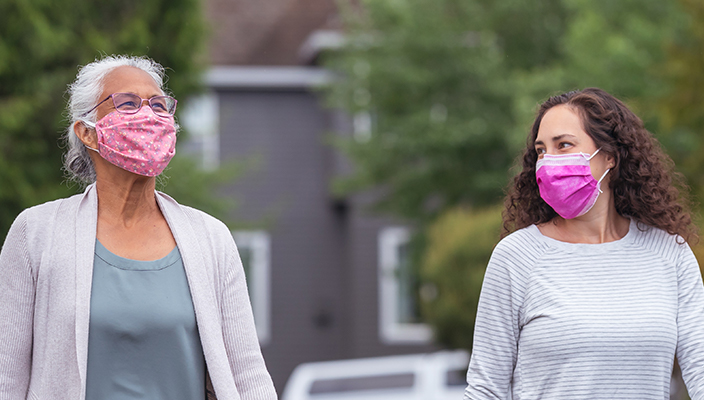
 Evelyn Ortiz
Evelyn Ortiz Economic and social conditions are one reason why. Many people in the Hispanic and Latino community are essential workers. That means they are more likely to be exposed to the virus. In addition, says Cecilia Rosales, M.D., M.S., many of them live with family members from multiple generations. Dr. Rosales is a doctor and researcher. She has worked with the Hispanic and Latino community for more than 30 years. Her work focuses on health issues around the border between the United States and Mexico. Now, she brings that experience to her role as a leader for All of Us at the University of Arizona/Banner Health. “People are constantly getting sick, because they need to go out and work,” she says. For many, “social distancing is just not possible. It’s a vicious cycle.”
Economic and social conditions are one reason why. Many people in the Hispanic and Latino community are essential workers. That means they are more likely to be exposed to the virus. In addition, says Cecilia Rosales, M.D., M.S., many of them live with family members from multiple generations. Dr. Rosales is a doctor and researcher. She has worked with the Hispanic and Latino community for more than 30 years. Her work focuses on health issues around the border between the United States and Mexico. Now, she brings that experience to her role as a leader for All of Us at the University of Arizona/Banner Health. “People are constantly getting sick, because they need to go out and work,” she says. For many, “social distancing is just not possible. It’s a vicious cycle.” Christian Ramirez Martinez, M.D., believes that precision medicine is one key to ending these types of health disparities. Precision medicine is health care that is based on you as an individual. It takes into account things like where you live, what you do, your genes, and your family health history. Advancing precision medicine will require research that includes people from all backgrounds. Hispanic and Latino communities have not always been included in research in the past. All of Us is committed to changing that. And we couldn’t do it without the Hispanic and Latino communities that are part of the program.
Christian Ramirez Martinez, M.D., believes that precision medicine is one key to ending these types of health disparities. Precision medicine is health care that is based on you as an individual. It takes into account things like where you live, what you do, your genes, and your family health history. Advancing precision medicine will require research that includes people from all backgrounds. Hispanic and Latino communities have not always been included in research in the past. All of Us is committed to changing that. And we couldn’t do it without the Hispanic and Latino communities that are part of the program.